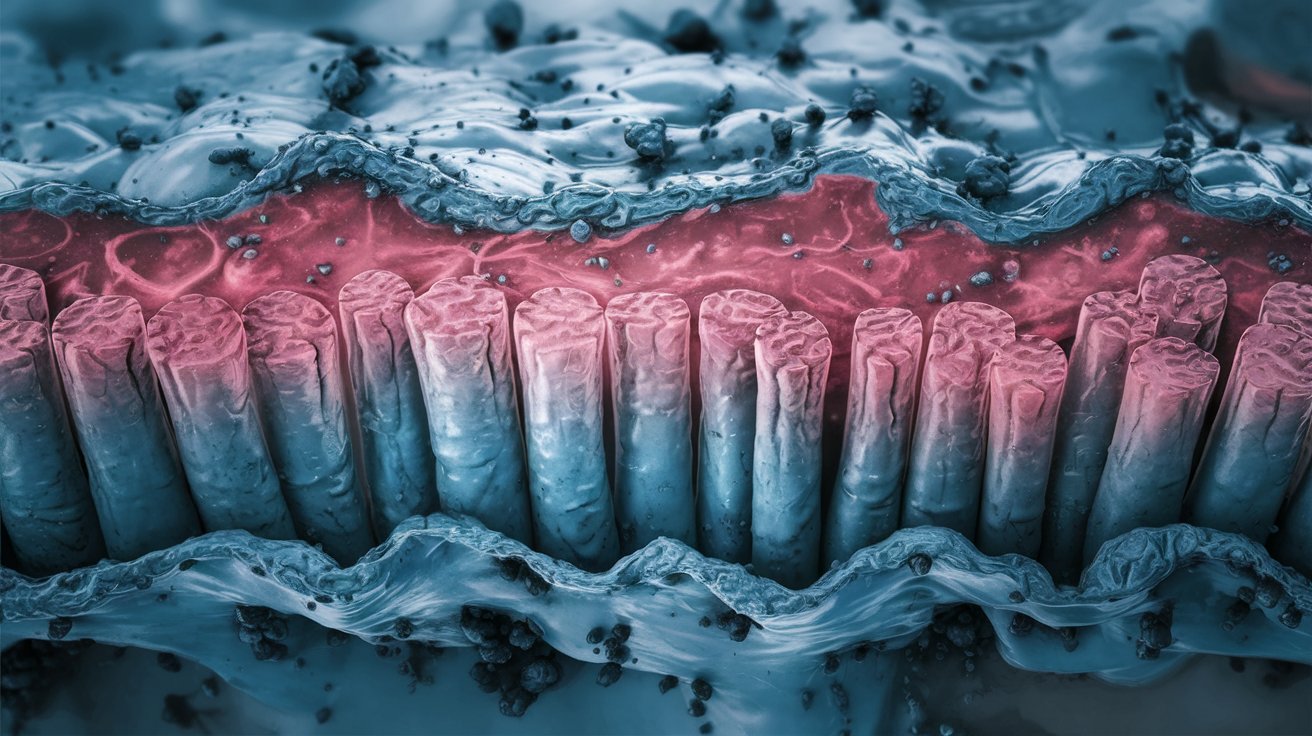
Mucoepithelial Dysplasia might sound like a mouthful, but understanding it can be simpler than you think. This rare condition affects the mucous membranes, particularly in the respiratory and digestive tracts. What causes Mucoepithelial Dysplasia? The exact cause remains unknown, but researchers believe genetic mutations play a significant role. Symptoms often include chronic cough, difficulty swallowing, and recurrent infections. Diagnosing this condition usually involves a combination of clinical evaluations, imaging studies, and sometimes genetic testing. While there's no cure, treatments focus on managing symptoms and improving quality of life. Curious to learn more? Here are 30 facts that will help you understand Mucoepithelial Dysplasia better.
Key Takeaways:
- Mucoepithelial dysplasia is a rare genetic disorder affecting multiple organs, leading to skin abnormalities, eye issues, respiratory problems, and dental anomalies. Currently, there is no cure, and treatment focuses on managing symptoms.
- Understanding the genetic and molecular basis of mucoepithelial dysplasia is crucial for potential treatments. Research is ongoing to study gene mutations, protein dysfunction, and potential gene therapy options.
What is Mucoepithelial Dysplasia?
Mucoepithelial dysplasia is a rare genetic disorder affecting the epithelial cells lining various body parts. This condition can lead to a range of symptoms and complications. Here are some intriguing facts about mucoepithelial dysplasia.
-
Genetic Origin: This disorder is caused by mutations in specific genes responsible for the development and function of epithelial cells.
-
Rare Condition: Mucoepithelial dysplasia is extremely rare, with only a handful of documented cases worldwide.
-
Affects Multiple Organs: It can impact various organs, including the skin, eyes, and respiratory tract.
-
Skin Symptoms: Individuals may experience skin abnormalities such as blisters, erosions, and hyperpigmentation.
-
Eye Involvement: Eye issues like corneal erosions and conjunctivitis are common in those with this condition.
-
Respiratory Problems: Respiratory complications, including chronic cough and recurrent infections, are often seen.
-
Dental Issues: Dental anomalies, such as enamel defects and early tooth loss, can occur.
-
Diagnosis: Diagnosis typically involves genetic testing and clinical evaluation of symptoms.
-
No Cure: Currently, there is no cure for mucoepithelial dysplasia, and treatment focuses on managing symptoms.
-
Supportive Care: Supportive care, including wound care and infection prevention, is crucial for affected individuals.
Genetic and Molecular Insights
Understanding the genetic and molecular basis of mucoepithelial dysplasia is essential for developing potential treatments. Here are some key facts about its genetic and molecular aspects.
-
Gene Mutations: Mutations in the TP63 gene are often implicated in this disorder.
-
Autosomal Dominant Inheritance: Mucoepithelial dysplasia is typically inherited in an autosomal dominant pattern.
-
Protein Dysfunction: The mutations lead to dysfunction in proteins crucial for epithelial cell development and maintenance.
-
Research Ongoing: Researchers are continually studying the genetic mechanisms to find potential therapeutic targets.
-
Animal Models: Animal models are used to study the disease and test potential treatments.
-
Gene Therapy Potential: Gene therapy is being explored as a possible future treatment option.
-
Biomarkers: Identifying biomarkers can help in early diagnosis and monitoring disease progression.
-
Epigenetics: Epigenetic factors may also play a role in the manifestation of symptoms.
Clinical Manifestations
The clinical manifestations of mucoepithelial dysplasia can vary widely among individuals. Here are some important facts about its symptoms and complications.
-
Variable Symptoms: Symptoms can vary greatly, even among family members with the same genetic mutation.
-
Early Onset: Symptoms often appear in early childhood.
-
Chronic Nature: The condition is chronic and requires long-term management.
-
Painful Blisters: Painful blisters and erosions on the skin are common.
-
Vision Problems: Vision problems due to corneal involvement can lead to significant impairment.
-
Breathing Difficulties: Breathing difficulties and recurrent respiratory infections are frequent issues.
-
Impact on Quality of Life: The condition can significantly impact the quality of life due to its chronic and painful nature.
Management and Treatment
Managing mucoepithelial dysplasia involves a multidisciplinary approach to address the various symptoms and complications. Here are some facts about its management and treatment.
-
Symptom Management: Treatment focuses on managing symptoms rather than curing the disease.
-
Wound Care: Proper wound care is essential to prevent infections and promote healing.
-
Eye Care: Regular eye examinations and appropriate treatments are necessary to manage eye symptoms.
-
Respiratory Support: Respiratory support, including medications and therapies, can help manage breathing difficulties.
-
Genetic Counseling: Genetic counseling is recommended for affected families to understand the inheritance pattern and risks for future generations.
Final Thoughts on Mucoepithelial Dysplasia
Mucoepithelial dysplasia, a rare genetic disorder, impacts the mucous membranes and epithelial tissues. Understanding its symptoms, causes, and treatments can help those affected manage their condition better. Early diagnosis and intervention are crucial for improving quality of life. Genetic counseling offers valuable insights for families dealing with this disorder. Research continues to evolve, bringing hope for more effective treatments in the future. Awareness and education about mucoepithelial dysplasia can lead to better support systems and resources for patients and their families. By staying informed and proactive, individuals can navigate the challenges of this condition more effectively. Remember, knowledge is power when dealing with any health issue. Stay curious, stay informed, and support those around you who might be affected by rare conditions like mucoepithelial dysplasia.
Frequently Asked Questions
Was this page helpful?
Our commitment to delivering trustworthy and engaging content is at the heart of what we do. Each fact on our site is contributed by real users like you, bringing a wealth of diverse insights and information. To ensure the highest standards of accuracy and reliability, our dedicated editors meticulously review each submission. This process guarantees that the facts we share are not only fascinating but also credible. Trust in our commitment to quality and authenticity as you explore and learn with us.
